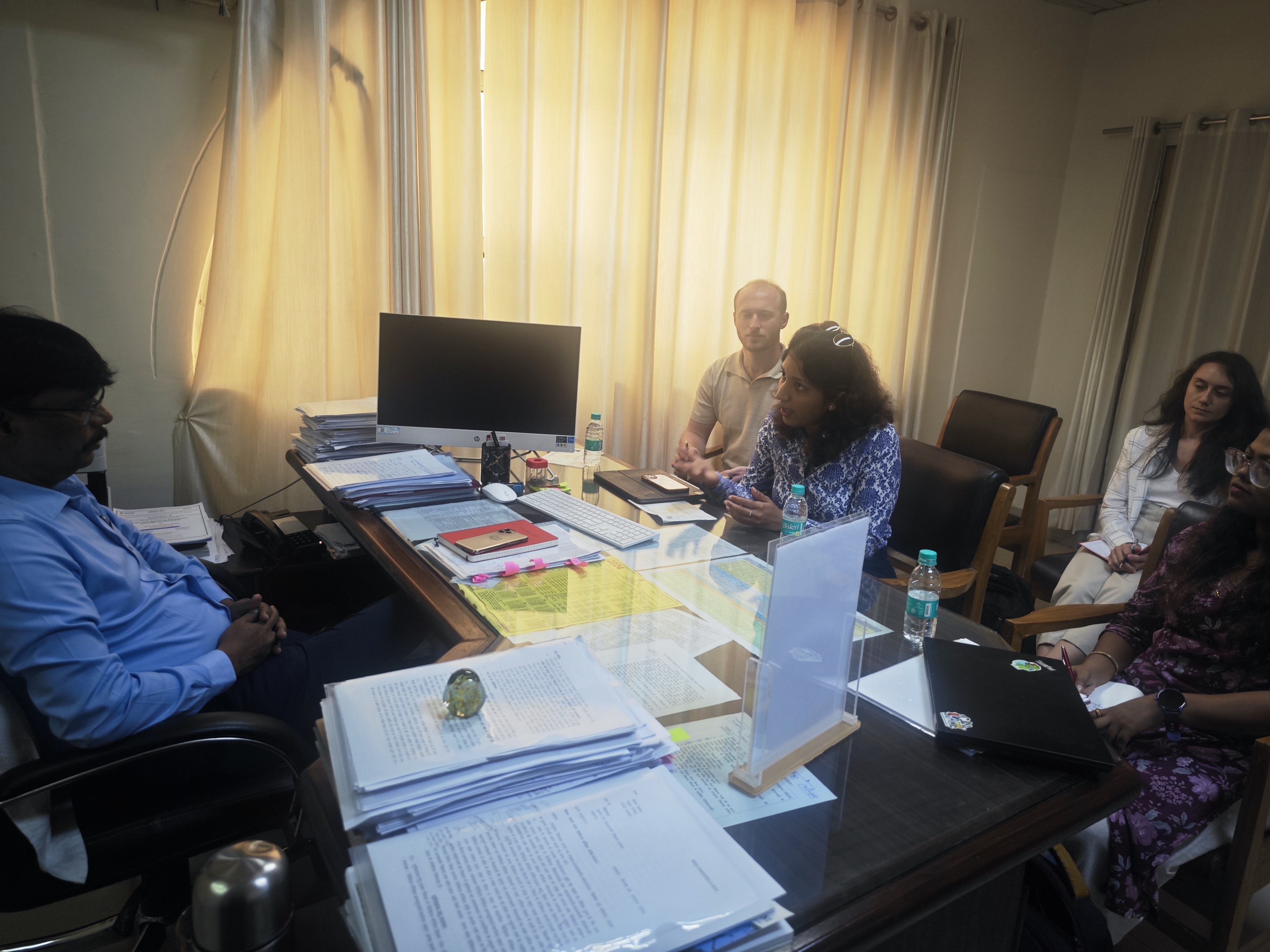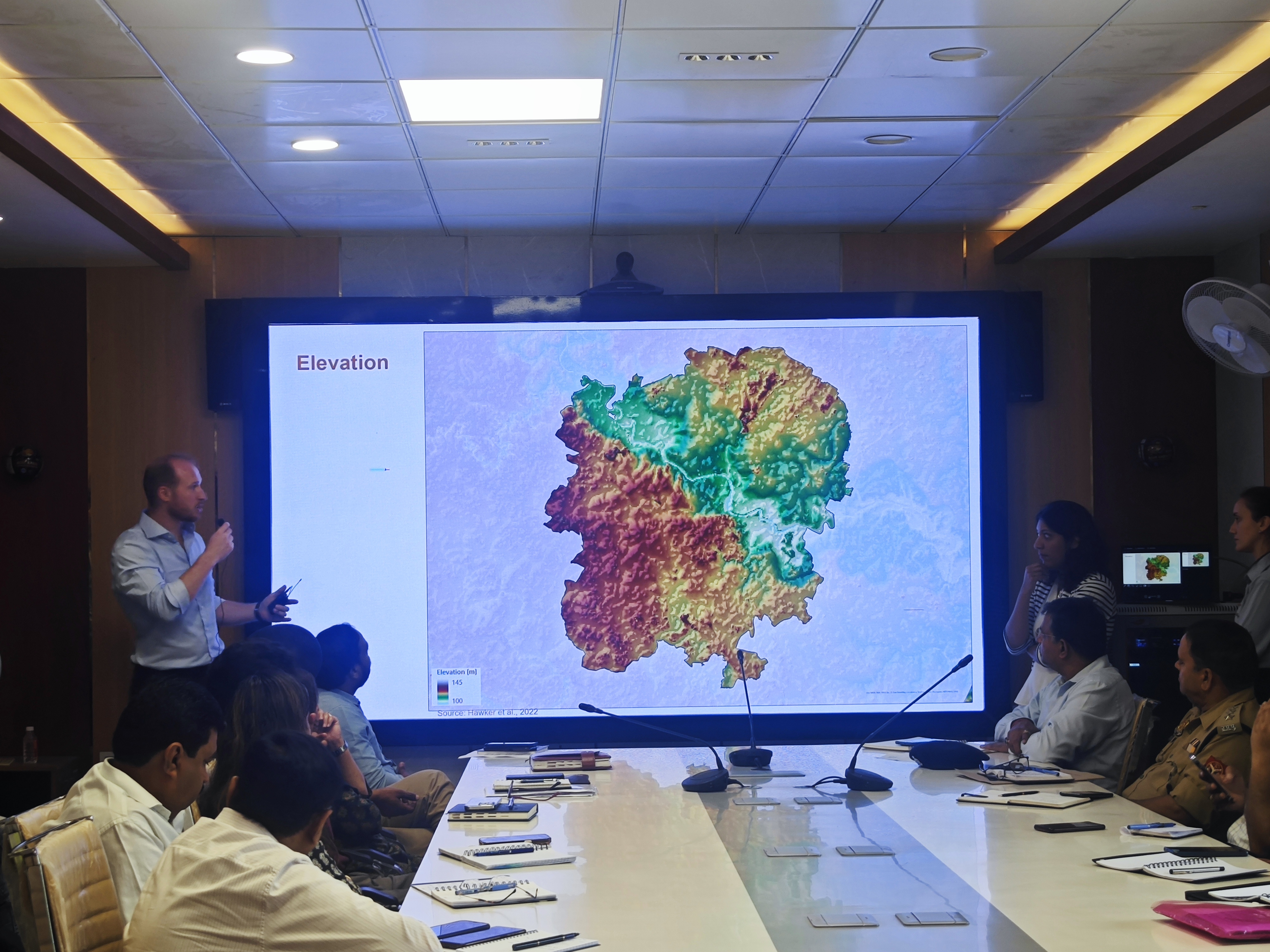Urban Heat Resilience Action Plan - Lucknow
In a decisive step to address the escalating impacts of urban heat and foster climate resilience, UN-Habitat India forged a strategic partnership with the Uttar Pradesh Urban Development Department (UDD). This collaboration was formalized through the signing of a Memorandum of Understanding (MoU), marking a pivotal advancement toward climate-smart and sustainable urbanization in the region. UN-Habitat India provided essential technical advisory services and led capacity-building initiatives designed to tackle the unique challenges faced by urban areas in Uttar Pradesh, particularly in response to increasing heatwaves and other climate-related adversities.
Action Points
- Assessment: Indicators Report Validation and Endorsement: The Indicators Report underwent thorough validation and endorsement by relevant stakeholders through organized meetings and working sessions. This process facilitated feedback collection and necessary revisions. Formal approval of the validated report was sought from key stakeholders, including municipal authorities and pertinent departments, ensuring alignment with the identified climate indicators. Additionally, UN-Habitat refined the heat assessment questionnaire based on stakeholder input.
- Spatial Mapping: Data Points for GIS Maps Preparation: Essential spatial data was compiled for GIS mapping, covering land use, infrastructure, environmental features, and demographic statistics. The finalized maps were utilized for diagnostics and further analysis.
- Strategic Actions for Vulnerable Areas: In collaboration with international experts, strategic actions were formulated to mitigate urban heat vulnerabilities. This involved specific interventions at both neighborhood and city-wide levels, accompanied by an extensive workshop to discuss and refine these actions among stakeholders, urban planners, and experts. Comprehensive mapping of vulnerable neighborhoods guided the development of targeted city-wide interventions.
Public Engagement: Planning for Consultations and Participatory Approaches: A coordinated approach was taken to facilitate consultations and participatory methods, leveraging networks and resources from institutions such as AKTU Lucknow. Efforts were also made to engage other relevant organizations and community groups to enrich the consultation process.

UN-Habitat and Arcadis team meeting with the Special Secretary, Urban Development Department, Governement of Uttar Pradesh
Key Outputs
- Lucknow Urban Sustainability Indicators Report: This report identified and evaluated key indicators affecting urban areas, establishing a baseline across 12 sectors documented quantitatively and spatially.
- City Profile and City Heat Assessment Report: A detailed examination of the city’s urban heat challenges and opportunities provided a robust foundation for targeted interventions.
- Urban Heat Action Strategy: A comprehensive strategic action plan and project pipeline were developed to address vulnerabilities to extreme heat, scaling from individual buildings to the broader city landscape.
Capacity Building and Training: A one-day workshop was organized to present the action plan and conduct training on the tools and processes employed throughout the project.

Workshop chaired by Municipal Commissioner, Lucknow Municipal Corporation
